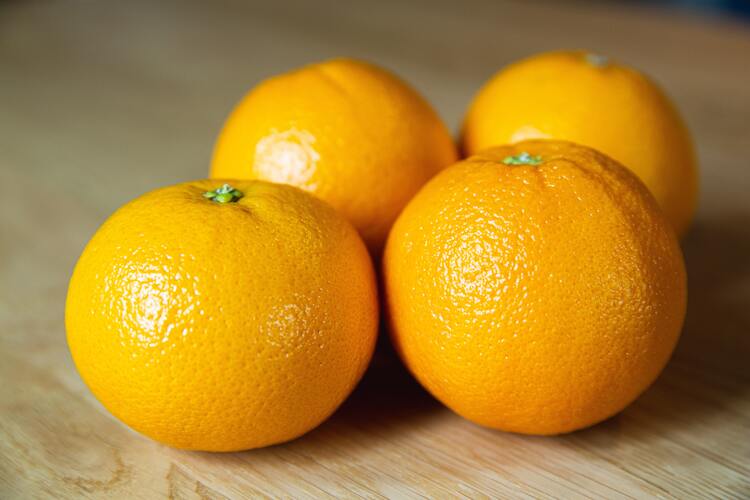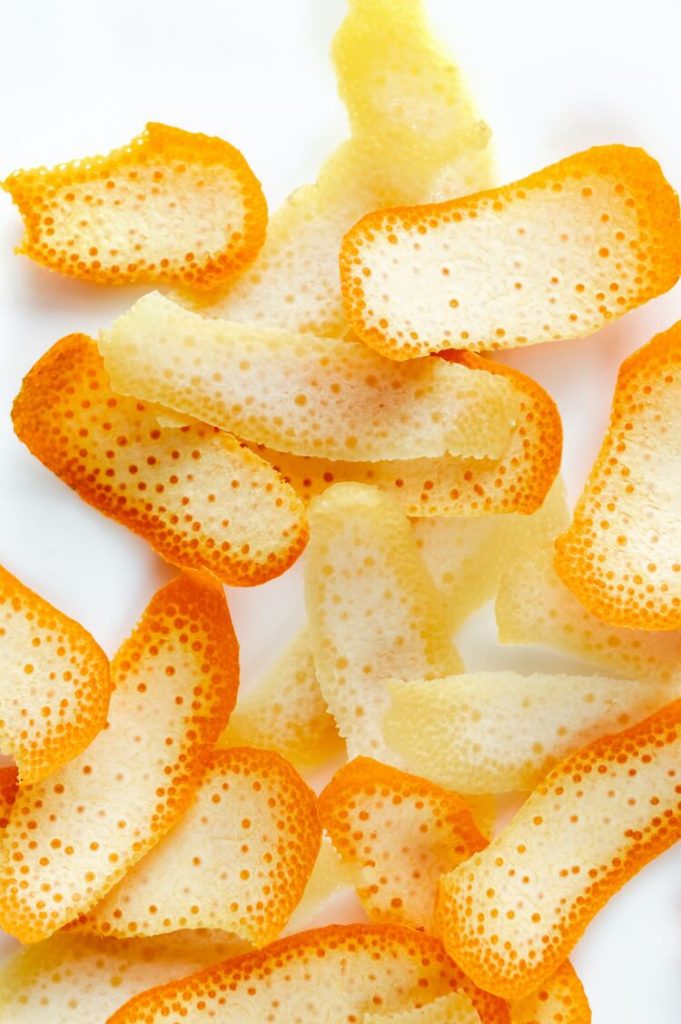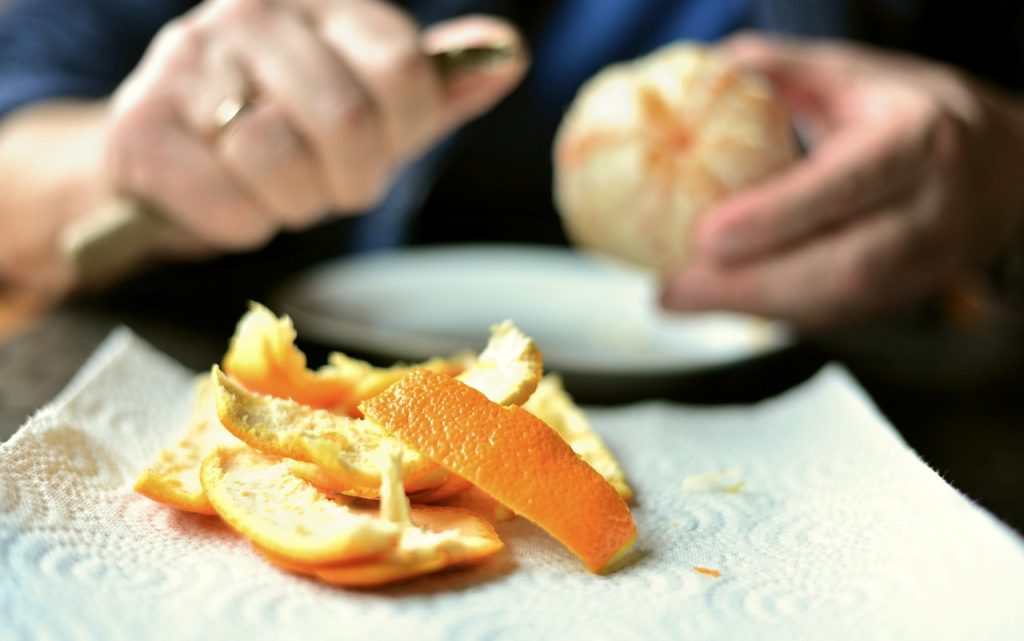Do you enjoy citrus or citrus-infused teas? If so, have you ever considered orange peel tea?
This citrus tea has a refreshing flavor. Plus, it is rich in antioxidants and vitamin C. It has anti-inflammatory properties that may help lower the risk of chronic diseases such as heart disease and cancer.
Keep reading if you want to learn more about this delish tea.
Please note: This article contains affiliate links, meaning I may earn a commission if you make a purchase by clicking a link. Of course, this comes at no extra cost to you and helps me to keep offering solid information to readers.

What is Orange Peel Tea? Ingredients and Preparation
Orange peel tea is a type of herbal tea that is naturally caffeine-free and has a sweet, citrusy flavor. It is easy to make at home by steeping dried orange peels in hot water for a few minutes.
It can be enjoyed hot or cold. Also, it is a great way to use leftover orange peels.
To prepare, you will need a few simple ingredients. You can use either fresh or dried orange peels, depending on what you have on hand. Here’s what you’ll need:
- Dried orange peel or fresh orange peel
- Water
- Honey or another natural sweetener
- Cinnamon, cardamom, cloves, or other spices (optional)
- Green tea or herbal tea (optional)
- Lemon juice (optional)
To prepare the tea, start by boiling the orange peel in water. You can use about one tablespoon of dried orange peel or a few pieces of fresh orange peel per cup of water. Let the orange peel simmer in the water for about 10-15 minutes.
Next, strain the orange peel from the water using a fine mesh strainer or cheesecloth. You can add honey or another natural sweetener to taste and any spices you like, such as cinnamon or cardamom.
If you want to add extra flavor and health benefits, you can also add green or herbal tea. Simply brew the tea separately and add it to your orange peel tea after straining out the orange peel.
Finally, add a squeeze of lemon juice for a refreshing citrus flavor.
Note: If you are using fresh orange peel, wash it thoroughly before using. You can also dry the orange peel in the sun or in a low-heat oven to preserve it for later use.
Orange Peel Tea Variations
If you’re a fan of citrus flavors, you’ll love the different variations of orange peel tea. Here are some examples:
Black Tea with Orange Peel
Try adding orange peel to your black tea for a bold and flavorful cup of tea. Steep your favorite black tea and add some dried orange peel to the mix. This will give your tea a tangy citrus flavor that compliments the boldness of the black tea.
Iced Orange Peel Tea
On a hot summer day, there’s nothing more refreshing than a glass of iced tea. To make iced orange peel tea, brew a strong pot of black tea and add a few pieces of dried orange peel. Once the tea has cooled, pour it over ice and enjoy a refreshing and citrusy drink.
Orange Peel Ginger Tea
The combination of orange and ginger can be described as a classic. Begin by preparing the classic version of the tea. As the tea steeps, grate or slice a small piece of fresh ginger root. Add the ginger to the pot and let it infuse with the orange peel. Ginger adds a pleasant heat and a hint of spiciness to the tea. Strain the tea, and if you prefer a sweeter taste, add a dash of honey or a squeeze of fresh lemon.
Orange Peel Mint Tea
Combine orange peel with fresh mint leaves for a refreshing and cooling twist. Prepare the classic version of the tea, and while it’s steeping, add a handful of fresh mint leaves to the pot. The mint leaves impart a refreshing taste that beautifully complements the citrus flavor of the orange. Strain the tea, and sweeten it with a touch of honey or a sprinkle of sugar if desired.
Orange Chamomile Tea
The soothing properties of chamomile make it an excellent addition to orange peel tea. Begin by preparing the classic version of the tea. Add a chamomile tea bag or a teaspoon of dried chamomile flowers to the pot as it steeps. Allow the flavors to blend for the same duration as the orange peel. Strain the tea; if desired, add a drizzle of honey for sweetness and extra relaxation.
For more ideas on combining orange peel with true or herbal teas, check out our citrus teas article.

Health Benefits of Orange Peel Tea
Drinking orange peel tea can be highly beneficial to your health. Here are some of the health benefits:
- High in Vitamin C: Oranges are rich in Vitamin C, essential for a healthy immune system. Vitamin C is a powerful antioxidant that helps protect your body from free radicals.
- Anti-Inflammatory and Antioxidant: Orange peel tea contains flavonoids, polyphenols, and limonene, all potent anti-inflammatory and antioxidant compounds. These compounds can help reduce inflammation and protect your cells from damage.
- Good for Digestion: This tea contains pectin, a soluble fiber that can help regulate your digestion. Pectin can also help reduce cholesterol levels in your blood.
- Weight Management: Orange peel tea can be a great addition to your diet. It is low in calories and high in fiber, which can help you feel full and satisfied for longer.
- Healthy Skin: Oranges contain plant compounds that can help improve the health of your skin. These compounds can help reduce inflammation, fight bacteria, and promote healthy skin cells.
- Mood Booster: This specific tea contains hesperidin, a flavonoid that can help improve your mood. Hesperidin has been shown to have a calming effect on the nervous system.
- Antimicrobial Properties: Oranges contain antimicrobial compounds that can help fight off bacteria and viruses. This makes it a great choice when you are feeling under the weather.
- Relieves Nausea: Oranges and other citrus fruits can help relieve nausea and vomiting. It is a natural remedy that can be used to treat motion sickness, morning sickness, and other types of nausea.
Buying and Choosing Oranges
When making orange peel tea, the first step is to choose the right oranges. Here are some tips for buying and selecting oranges:
Oranges
When selecting oranges, look for ones that are firm, heavy for their size, and have a smooth, bright skin. Avoid oranges that have soft spots, blemishes, or mold. Oranges that are too soft or too hard may not be as flavorful.
Organic Oranges
If you are concerned about pesticide residue, consider buying organic oranges. Organic oranges are grown without the use of synthetic pesticides or fertilizers. While they may be more expensive than conventionally grown oranges, they are a great choice if you want to avoid exposure to potentially harmful chemicals.
Pesticide Residue
If you can’t find or afford organic oranges, don’t worry. Most oranges sold in the United States have low levels of pesticide residue. According to the Environmental Working Group, oranges are one of the “Clean 15” fruits and vegetables with the lowest levels of pesticide residue.

Storing and Using Orange Peels
When storing orange peels, it’s important to keep them dry and away from moisture. Dried orange peel can be stored in an airtight container in a cool, dry place for up to six months. Fresh orange peels, on the other hand, should be used within a few days or frozen for later use.
To make dried orange peel, simply peel the oranges and allow the peels to dry out in a sunny spot or in a low-temperature oven for several hours. Once dry, you can store the peels in an airtight container.
To use dried orange peel, you can grind it into a fine powder and add it to your favorite recipes for a burst of citrus flavor. You can also steep the peels in hot water to make a fragrant tea.
If you’re using fresh orange peels, be sure to wash them thoroughly before use. You can use a vegetable peeler to remove the outer layer of the peel, being careful not to include any of the bitter white pith.
Orange peels are a versatile ingredient that can add flavor and aroma to a variety of dishes.
Buying Recommendations
Even though I recommend using fresh orange peels to prepare tea, I am leaving below some recommendations on dried peels and orange peel infused blends.
Frontier Co-op Cut & Sifted Orange Peel


Tazo Herbal Tea Tea Bags Wild Sweet Orange

Clipper Tea, Orange, and Turmeric

Frequently Asked Questions
What are the benefits of drinking tea made from orange peels?
Orange peel tea is rich in vitamin C, which helps boost your immune system and fight off infections. It also contains antioxidants that can reduce the risk of chronic diseases, such as heart disease and cancer. Drinking this tea can also aid digestion, improve skin health, and promote relaxation.
How can I make orange peel tea for weight loss?
To make orange peel tea for weight loss, steep dried orange peels in hot water for about 10 minutes. You can add honey or lemon for flavor. The tea can help suppress appetite, boost metabolism, and aid in weight loss when combined with a healthy diet and exercise.
What are the different types of orange tea?
There are several types of orange tea, including black tea with orange flavoring, green tea with orange peel, and herbal tea made from dried orange peels. You can find orange tea blends with other ingredients, such as ginger, cinnamon, and cloves.
What are the potential side effects of drinking orange peel tea?
Drinking orange peel tea in moderation is generally safe for most people. However, consuming large amounts of this tea can lead to stomach upset, heartburn, and diarrhea. If you have a citrus allergy, you should avoid drinking the tea.
Can I add milk to my orange tea?
While it is possible to add milk to your orange tea, it is not recommended as it can curdle and spoil the flavor. Instead, try adding honey or lemon for sweetness.
Is it safe to consume orange peel tea regularly?
Drinking orange peel tea in moderation is safe for most people. However, if you have a medical condition or take medication, it is best to consult with your doctor before adding this tea to your diet.

This is definitely a flavorful tea to enjoy. I hope you have enjoyed the article.
Have you tried orange peel tea?
More About Tea
The Process of Making Black Tea